One type fits all
Our technology can convert blood and organs into types that are universally accepted, substantially increasing the number of possible donors. And more donors lead to more recipients.
Patients, providers, and healthcare systems will be free from the barriers of blood types and the need to match them.

Doubling the supply of universal O blood
Blood transfusions are used during surgery, emergency traumas, natural disasters, cancer treatments, and military interventions. Nearly 16 million units of blood are used in transfusions each year in the US, yet there’s still a shortage of nearly 3 million units of O type blood a year, which is the type needed — and transfused — most.
By being able to convert A (and soon) B blood groups to O, we can effectively double the supply of O- blood, which is universally accepted.
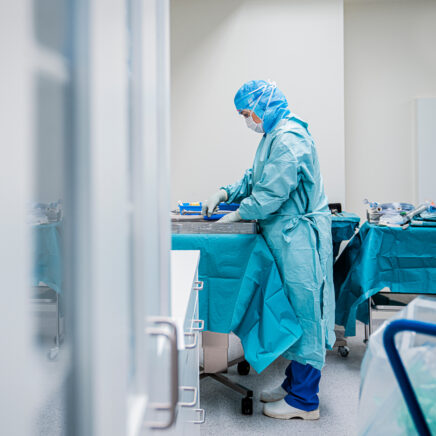
Increasing organ donations, decreasing wait lists
Globally, there are 150,000 organ transplants yearly. In the United States alone, there are 40,000 organ transplants each year. Yet more than 17 people still die every day while waiting for a life-saving organ.
Organs have blood types, too, so blood-type matching has been a barrier. By eliminating this criteria, people who want to donate to their loved ones will have one less barrier. And other donor organs are more likely to find their way to a patient in need, reducing the amount of wasted viable organs.
Patients will not have to wait as long for an organ that’s compatible by blood type; we can make them compatible.
What we do
We use enzymes to convert antigens on blood cell surfaces. This will change any blood type to O. So far, we can convert A blood type to O. And soon we’ll be able to do the same for the B and AB blood groups.
Blood group A
A antigen
Enzymes
Blood group O
H antigen
How we’ll do it
The enzymes will be integrated into standard blood processing and organ procurement workflows.
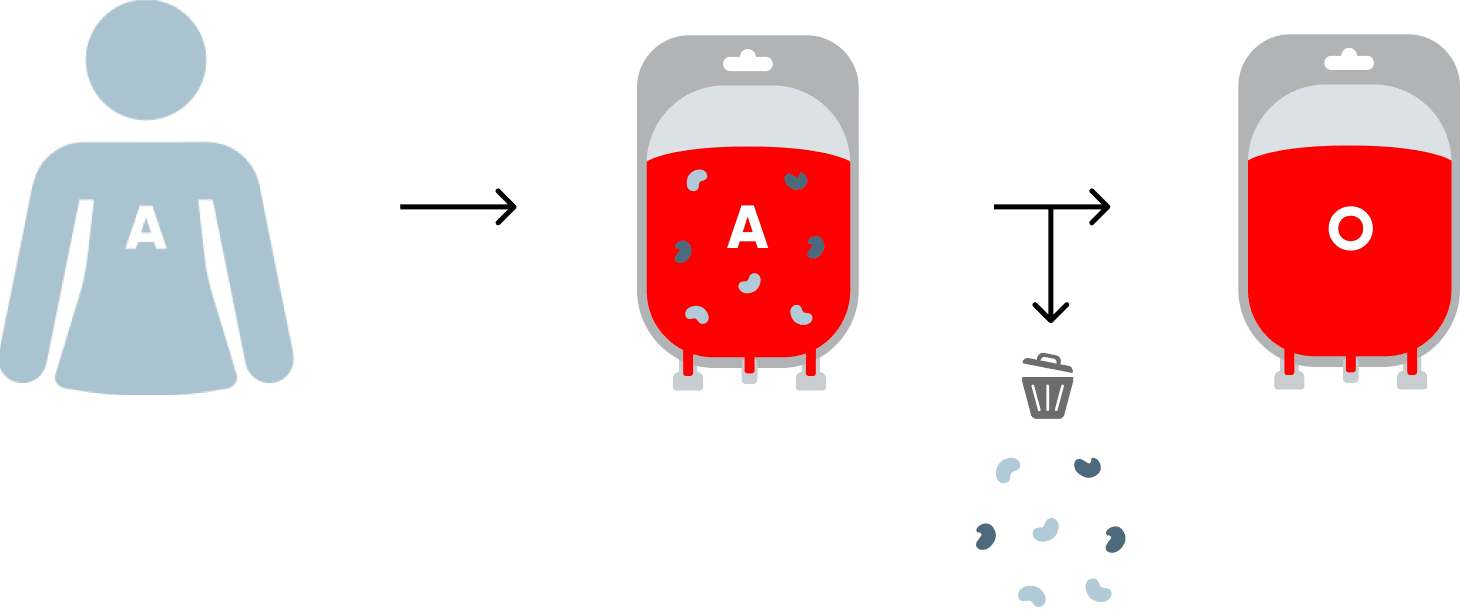
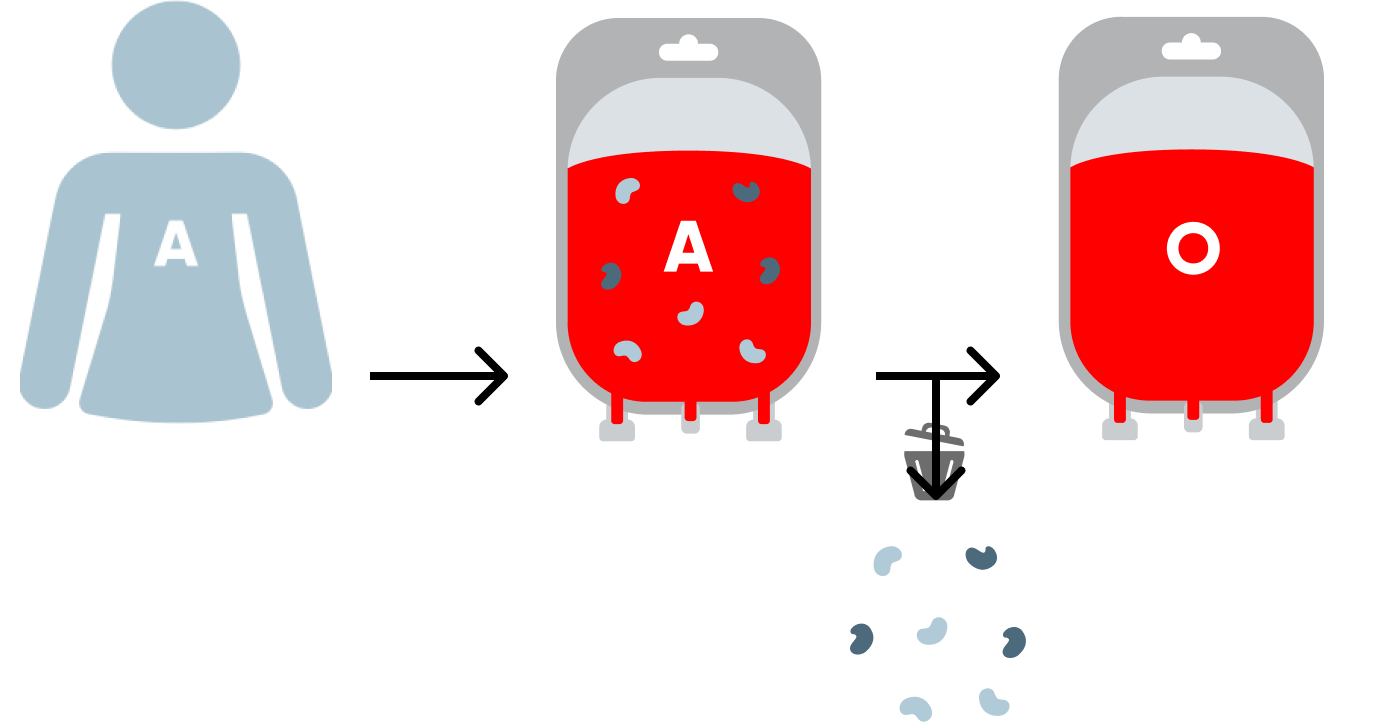
Blood transfusions
Enzymes can be added to blood bag systems at the point of whole blood or red blood cell collection.
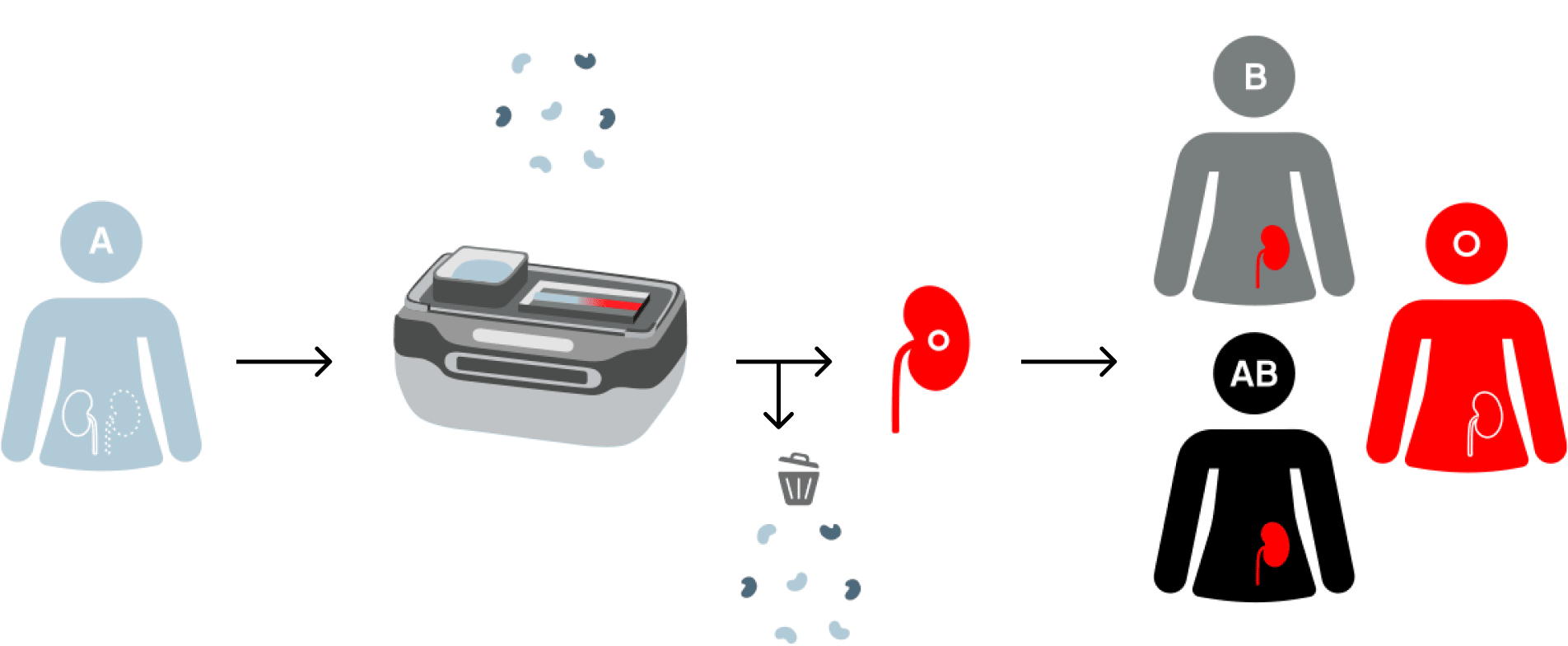
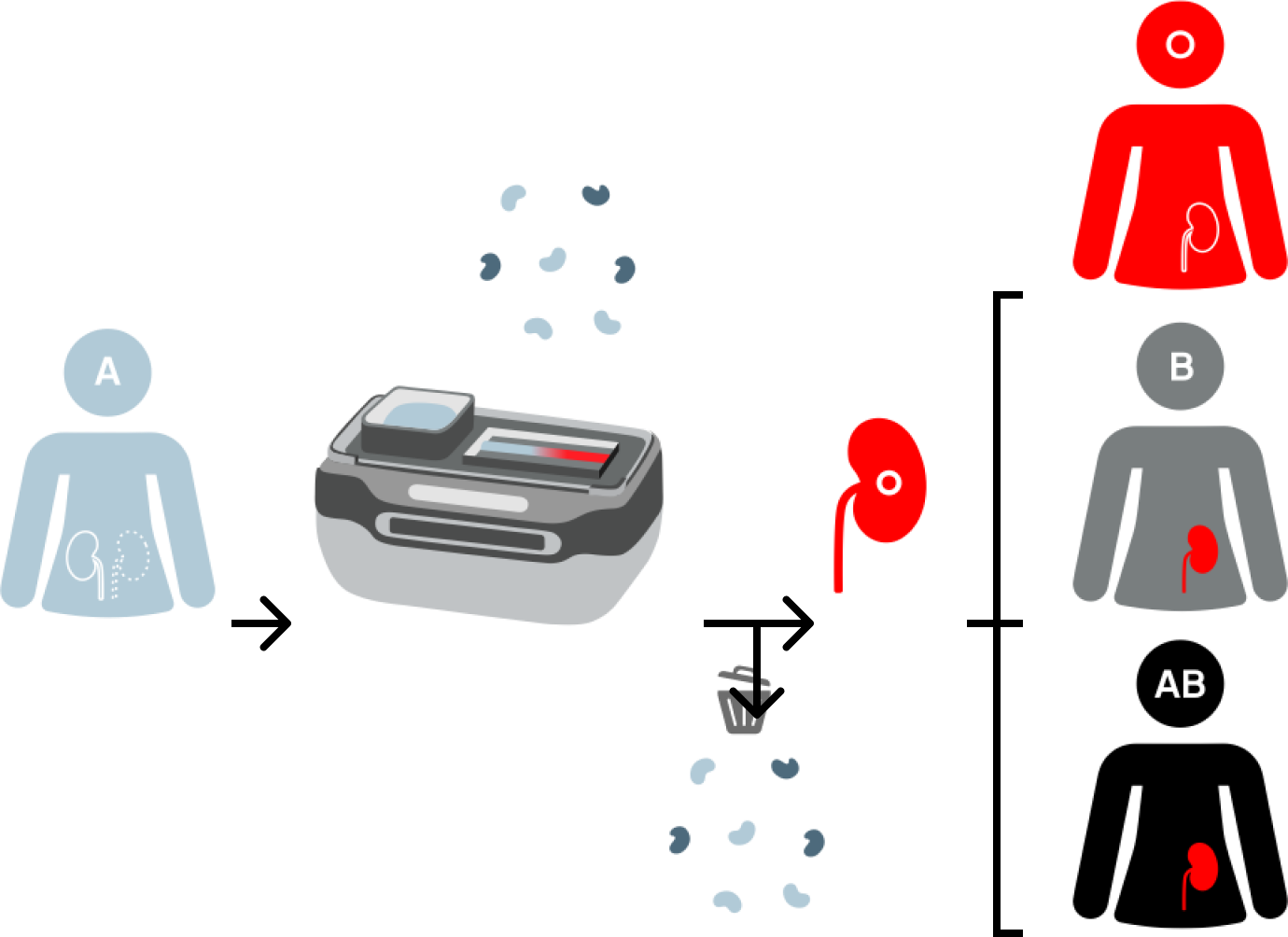
Organ transplants
Enzymes can be added to preservation solutions used in organ perfusion devices.
When you’ve been seeing someone for 10 years and they haven’t been transplanted because of blood type, it’s hard. You know they could be saved.
Interested in connecting?
We're always looking to connect with those interested in joining us on our journey.
Get in touch